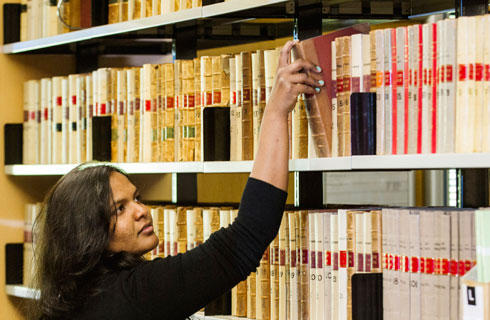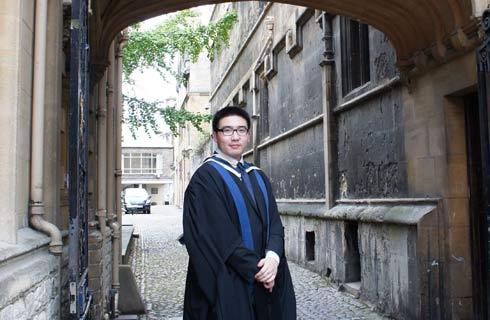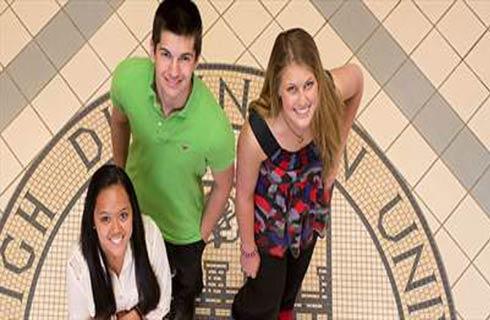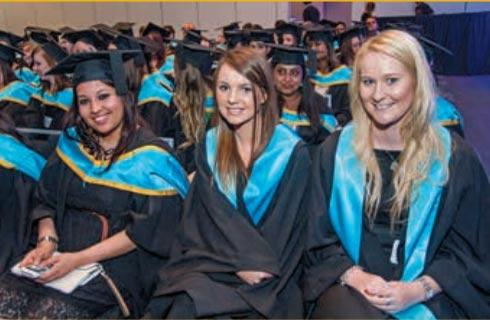MBiol(荣誉)生物化学
MBiol, BSc (Hons) Biochemistry

学历文凭
Bachelor Degree

专业院系
Faculty of Biological Sciences

开学时间

课程时长

课程学费

国际学生入学条件
IDP—雅思考试联合主办方

雅思考试总分
- 雅思总分:
- 托福网考总分:
- 托福笔试总分:
- 其他语言考试:
CRICOS代码: C709
申请截止日期: 请与IDP联系 以获取详细信息。
课程简介
Many devastating diseases, such as cancer, are caused by just a few atoms being out of place inside your cells. Biochemistry aims to understand how living things work at the atomic level. This knowledge drives the most exciting developments in biomedical research, from the development of new drugs to treat neurodegenerative disorders to cancer therapies and coronavirus vaccines. How are genes encoded in DNA and how do cells use this information to produce proteins How do proteins fold into 3D structures How does protein misfolding cause devastating diseases like Alzheimer’s How do mutations cause inherited disorders and cancer How do viruses infect and replicate inside cells On this course, taught by leading research experts, you’ll explore these questions and many others. You’ll understand the molecular basis of health and disease and how biochemists lead the way in therapeutic development. Biochemistry is an interdisciplinary subject at the boundary between biology and the physical sciences. As such, you’ll gain a unique knowledge base and skill set from your degree. This will make you highly sought after by a wide range of top employers within the biologicalbiomedical research sector and beyond.The integrated Masters (MBiol) gives you an additional year of specialist training, to study advanced research topics and undertake your own extended research project. You may also choose to apply for our 3 year BSc and transfer to an MBiol up until the end of your second year, subject to suitable academic performance.Course highlightsExperience the cutting edge in a research-active environment with world-class facilities.Perform a final-year project at the frontier of modern research.Weekly practical classes in the first two years of your degree, with the option to experience working in a research lab in your final year.Build transferable skills and employability with our skills-based teaching.Extensive wellbeing and employability support from dedicated faculty teams.Our year in industry programme allows you to gain experience working with organisations, developing new skills for your CV.Experience life and learning in a different country through our study abroad programme, where you'll gain fresh perspectives and develop skills valued by employers.The ongoing expansion of biosciences creates varied employment prospects and career opportunities.Flexible degreesBiochemistry is a specialist degree within the School of Molecular and Cellular Biology, which offers you flexibility throughout your time at Leeds.Many of our degree courses share the same set of compulsory modules in the first year. A key benefit of having a common first year is that at the end of year 1, there may be opportunities to transfer onto degree courses in Biological Sciences, Microbiology and Biotechnology with Enterprise. Course transfers must happen prior to the commencement of Year 2 and are subject to space and academic background approval.FacilitiesThe School of Molecular and Cellular Biology is an international research hub with outstanding facilities for structural biology, biophysics, cell biology and imaging. This is underpinned by a recent £17 million investment by the University and a large grant portfolio from major external funders (the Wellcome Trust, Royal Society, BBSRC and MRC). These facilities underpin our research-led teaching and allow us to offer final year projects at the frontier of modern research. Recently refurbished teaching labs and dedicated computer clusters will allow you to develop your practical and computational skills during the first two years of your course. The Faculty Student Opportunity Team provide expert support for preparing applications for placements, internships and jobs.Wellbeing and support The University of Leeds features an extensive network of excellent services dedicated to you and your wellbeing.
相关申请
 预科
预科 奖学金
奖学金 实习机会
实习机会 在校学习
在校学习 跨境学习
跨境学习 校园授课-线上开始
校园授课-线上开始 在线/远程学习
在线/远程学习
开学时间&学费
学费信息仅供参考,请与IDP联系以获取详细信息
| 开学时间 | 时长 | 学费 | 地点 |
|---|
学校排名

世界排名153
数据源:
泰晤士高等教育世界大学排名
关于利兹大学

利兹大学在《2025 完整大学指南》中名列英国大学前25名,在2025 QS世界大学排名中名列世界前100名。它也是罗素大学集团大学之一,这是英国著名的顶尖研究密集型大学名单。该大学的学生满意度很高,在英国排名第三(2018年《泰晤士报高等教育学生体验调查》)。作为同一项调查的一部分,该大学的校园设施在英国排名第二,这是对学生发挥潜力的绝佳校园的认可。近年来,两栋新建筑投资超过1.2亿英镑。体育设施也被认为是世界级的。The Edge是一个为学生提供的令人难以置信的健身中心,包括一个25米的室内游泳池、攀岩墙和为不同体育活动设置的各种大厅。这是一所热情友好的大学,拥有充满活力、多样化的学生群体。事实上,来自世界130多个不同国家的13800多名国际学生在利兹大学学习。学生会是这个国家最活跃、最活跃的工会之一。学生可以加入300多个俱乐部和社团,利兹大学联盟(LUU)是英国第一个被全国学生联合会评为''优秀''的俱乐部和社团。
本校相关课程

生物多样性与保护
学历文凭
Masters Degree (Taught)
开学日期
课程费用总额


统计博士学位
学历文凭
Ph.D.
开学日期
课程费用总额


纯粹数学博士学位
学历文凭
Ph.D.
开学日期
课程费用总额


应用数学博士学位
学历文凭
Ph.D.
开学日期
课程费用总额


PhD in Geography
学历文凭
Ph.D.
开学日期
课程费用总额


PhD in Microwave and Millimetre Wave Engineering
学历文凭
Ph.D.
开学日期
课程费用总额

其他相关课程

理学学士(荣誉)生物医学
 德蒙福特大学
德蒙福特大学泰晤士高等教育世界大学排名:639
学历文凭
Bachelor Degree with Honours
开学日期
课程费用总额


理学硕士-分子和细胞生物学(研究)
 怀卡托大学
怀卡托大学学历文凭
Masters Degree (Research)
开学日期
课程费用总额


生物医学硕士
 奥克兰大学
奥克兰大学学历文凭
Masters Degree (Research)
开学日期
课程费用总额


MRes Cancer Biology
 诺丁汉特伦特大学
诺丁汉特伦特大学泰晤士高等教育世界大学排名:696
学历文凭
Masters Degree (Research)
开学日期
课程费用总额


理学学士(荣誉)生物医学
 布里斯托大学
布里斯托大学泰晤士高等教育世界大学排名:81
学历文凭
Bachelor Degree with Honours
开学日期
课程费用总额


PhD in Immunological and Cellular Strategies in Metabolic Disease (King's and Technische Universität Dresden)
 伦敦国王学院
伦敦国王学院学历文凭
Ph.D.
开学日期
课程费用总额










